- Home
- Allison Brennan
The Hunt Page 3
The Hunt Read online
Page 3
But he did return. To release them. So they could play the part of prey in his sick game. The hunter and the hunted.
Finding the Butcher meant more than justice. Only he could tell them who he had killed. That he had so much control over the grief of the living ate at Miranda constantly.
Rebecca had survived eight days in the hands of that madman, that murdering bastard. She had almost escaped. Almost.
As with Sharon, “almost” meant shit when you were dead.
Sitting in her car in the parking lot, Miranda took a deep breath. Closing her eyes, she buried her head in her arms, using the steering wheel as an armrest.
The tears came fast, anger and frustration boiling over in hot, salty rivulets down her cheeks. Her body, already sore from days of backbreaking searches, ached from the tension of facing Quinn again. She sobbed and shook, no sound escaping except the harsh intake of ragged breaths. It took her several minutes to control her grief. Even once she’d composed herself, it was hard to stay calm: when she looked at her face in the rearview mirror she saw death.
Seven times she had seen the dead girls. But there were nine young women still missing, their remains nothing but bones scattered in the wilderness. Bears and mountain lions didn’t care much for human dignity, didn’t adhere to Judeo-Christian burial rites.
Why me?
Why had she survived when so many others hadn’t? Why had he picked her in the first place? Why Rebecca Douglas or the Croft sisters? It made no sense. It hadn’t then, and it still didn’t now that she’d had twelve years to examine and reexamine everything leading up to her kidnapping, everything she’d endured in that godforsaken one-room torture shack, everything that had happened since she escaped.
She owed her father, that much she knew. If her father hadn’t taken her on the hunting trips she loathed as a child, she would never have known how to cover her tracks, how to deceive the hunter. She was the prey, but unlike the deer or bear her father hunted, she was an intelligent human being. She could outthink her pursuer, hide and run, run and hide, until she dove into the river . . . even if she had died in the icy water, she still would have won.
He would not have killed her. She would have escaped, stealing from him his trophy, his prize.
She’d not only won, but lived.
If Rebecca hadn’t fallen and broken her leg, would she have survived? Would she have made it to the road? Though not from Montana, Rebecca had been born and raised in the small, mountain community of Quincy, California. Similar terrain and—Miranda’s thoughts detoured from Rebecca.
Quincy. Damn, she couldn’t escape him.
Wiping the tears from her face, she glanced once more in the rearview mirror. No wonder Quinn thought she couldn’t handle the search. She looked horrible. She’d lost weight she couldn’t afford to lose. She hadn’t bothered with makeup and her dark hair, though clean, was limp.
What was she thinking? Why should she care what Quinn Peterson thought? He’d destroyed their bond long ago when he made it clear he thought her sanity hung by a thread.
She’d told him he was wrong, but he hadn’t listened. Well, she’d proven him wrong, hadn’t she? She was a functioning human being, doing just fine without the likes of Quinn Peterson.
She had responsibilities, and right now her duty was to tell the volunteers to stop searching. She dreaded this particular task, but she needed to handle it herself.
With a deep breath, she left the security of her Jeep and entered the makeshift search headquarters. Several students were on the phones, taking information or imparting details to aid in the search. A team had walked in just ahead of Miranda to pick up another section of the grid she’d mapped.
None of it mattered.
The tears she thought she’d buried sprang back into her eyes and she pinched the bridge of her nose. She swallowed them back. Not now.
The strangled cry of one of the girls snapped Miranda to attention.
“No. NO!”
Judy Payne, Rebecca’s roommate, was the one who’d called the police when Rebecca didn’t come home Friday night. She hadn’t left the headquarters since it had opened, answering phones, sending e-mails, printing thousands of flyers. Now, she stopped folding letters and stared at Miranda with wide eyes.
“Judy.” Miranda crossed the room to where the college girl sat, shaken.
“No, please.” Judy searched her eyes for something other than the truth, tears streaming down her face.
Miranda squatted next to the young, pretty blonde and took her hands. She had thought with each passing year it would be easier. The searches were well planned and executed, volunteers trained and competent, cops diligent and resolute. But it only got harder. Each time it was so much harder. Each missing girl took one more piece of Miranda’s soul with her to her grave.
“I’m sorry.” What else could she say? Sorry seemed so inadequate, so empty.
Judy collapsed into Miranda’s arms. Miranda held her, rocked her, murmured sounds into her ear, words that didn’t mean anything but she hoped comforted.
There was no need to say anything to the other dozen people in the room. Judy’s reaction told them what they needed to know. Tears rolled down the faces of the men and women who had believed, for a time, that they would find Rebecca alive.
Karl Keene, a young teaching assistant, approached them. Looking up, Miranda saw his eyes were also damp. She wanted to reassure him, and Judy, and everyone else, but there were no words. The weight of Judy’s grief fell hard on Miranda’s shoulders. What in the world could she reassure them about? That this time the police would find him? That this time he’d made a mistake?
She wanted to scream at the injustice that another girl was dead and they had nothing on her killer.
Instead, she reached out and squeezed Karl’s arm.
“I’ll take care of her,” he said, and took hold of the sobbing girl.
Miranda blinked back her own tears as she watched Karl wrap his arms around Judy and lead her outside. For a split second, she wished someone would hold her. Comfort her. Tell her everything was going to be okay, even if it wasn’t. Sometimes she needed to believe the lie.
But Quinn had given up on her, and she’d let Nick walk away. She had no one.
When they were gone, she noticed the other people in the room staring at her. She cleared her throat and spoke, her voice rough.
“Sheriff Thomas discovered Rebecca’s body this morning about four miles west of Cherry Creek Road and ten miles south of Route 84. Deputies are searching the area for clues, but—”
“It’s the Butcher?”
Miranda turned to the person who’d interrupted her, then looked down. It was Greg Marsh, Rebecca’s biology teacher, a squat, round man with rimless glasses.
“I—I can’t say. I—” she began.
“Yes you can. You were there.” He pointed to her feet. She looked down and blinked. She hadn’t noticed the mud caked on her boots.
“Greg, you know I can’t say anything.”
“You don’t have to.” He turned and left the room.
The others continued staring at Miranda. She needed to be alone, but she had a duty to everyone in this room. Though alive, they too were victims of the Butcher. Guilt crept down her throat as she fervently wished at times like these that she felt no responsibility to the victims, living or dead. What could she say to console Greg, Judy, the others?
She knew what Rebecca had gone through. And thanks to the newspapers detailing the tragedies each and every time the Butcher killed, so did everyone else. There was no consolation. Everyone knew Rebecca had been tortured, raped, and hunted like an animal.
Everyone knew the exact same thing had happened to Miranda.
She swallowed the humiliation, the pain, the fear-tinged anger boiling within. Few people talked to her anymore about her own abduction and escape. She knew they whispered among themselves about her, but she ignored it. She had to. Thinking, knowing, what people thought about her made de
aling with her nightmares more difficult.
Miranda sighed in relief as tear-filled people gathered in the corner, murmuring among themselves. They didn’t expect her to talk, to placate them. To tell them everything was going to be all right when nothing would ever be all right until the Butcher was caught.
She walked over to the map she’d created of the area they’d been searching. She’d divided Gallatin County into four quadrants, uneven because of the mountainous terrain. Each quadrant was split into dozens of segments.
They hadn’t covered even two quadrants since last Saturday.
Six red dots, almost invisible to the naked eye, identified where the bodies of six college girls had been found. Hand shaking, she pulled a fine-tipped red pen from her pocket and placed a dot where Rebecca had died. The seventh victim. The seventh known victim, Miranda reminded herself.
She didn’t need the red dots to tell her where the bodies were found; she didn’t need the blue dots to tell her where the women were last seen. She had the same map—with far more detail—on the wall of her home office. Too many nights, she sat on her bed staring at the topography, willing the dots and lines and grids she’d created to tell her something, anything, about this bastard who hunted women.
A sob caught in her throat and she covered her mouth with her hands. She turned her attention to the dot southeast of Rebecca’s and touched it. Sharon’s spot.
She had to get back up the mountain. Only, Quinn was there.
Twelve years ago Quinn had been her rock, her support. He’d saved her in ways she remembered when she allowed herself to. Alone, in bed, with only her quiet tears for company.
She’d never forget meeting him at the hospital the day after she took the sheriff’s search team to where Sharon had been killed.
Though he’d carried her three miles the day before, she’d been too upset for a formal introduction. She hadn’t even known his name. And she was grateful he didn’t bring up her breakdown as he spoke to her while she lay in the hospital bed.
He didn’t coddle her like the nurses; he didn’t cry like her father; he didn’t shuffle his feet nervously like Sheriff Donaldson had when he interviewed her the day before.
Quinn Peterson stood like granite, tall, strong, firm, never wavering, never letting her see pity in his eyes.
Her entire body ached. The cuts on her feet stung even with the antibiotics and painkillers. Many of the cuts on her body had to be stitched, leaving scars she’d have for the rest of her life. The doctors had saved her breasts, though the damage had been severe.
She was alive, Sharon was dead. The scars on her skin were nothing compared to the jagged pain of guilt splitting her heart.
“You don’t have to do this,” Special Agent Quincy Peterson told Miranda when she said she would take him back to where she and Sharon had been held captive.
“Yes I do, Agent Peterson,” she’d said when they left the hospital. “I have to take you.”
She couldn’t think about her pain. Not now. She would do anything to find the man who murdered Sharon, because her best friend was dead and she was alive.
If it took going back to the rotting, moldy, rodent-infested hovel she’d been imprisoned in for seven hellish days, she would do it.
“I understand,” he said, and she believed he did. Everyone else who’d spoken to her seemed to want to placate her, but not this man. “Do you think you could call me Quinn? Agent Peterson seems too formal.”
“Okay.”
She had pinpointed the general area on the map and they drove in as far as they could before having to get out on foot, but they were three miles away.
If only they’d run in the other direction! They’d have hit a narrow road, but a road nonetheless. Would that have changed their fate? Would Sharon still be alive?
“I told her we should split up,” Miranda whispered when it was just her and Agent Peterson—Quinn.
“That was a good idea.”
“Sharon refused. We were so scared, I didn’t argue. And—” She stopped.
“Go on.”
“We didn’t understand why he was releasing us. Until we saw the gun. Then it was very clear—he wanted to hunt us down like animals. I don’t think we even thought about it, we certainly didn’t talk about it. We had no time. He told us to run.”
Run. Run!
“And we both knew exactly what he was going to do. He was going to kill us. Injured game.” She laughed bitterly.
During that walk, Quinn stayed at her side. Asked her quiet, firm questions. Never saying he was sorry. Never placating her. Never telling her she should have done something different, as she had the million times she’d questioned herself in the seventy-two hours since she’d been found on the bank of the Gallatin River.
She led them right to the decrepit shack in the middle of Nowhere, Montana, six miles west of the river where she’d jumped to her freedom. She stared at the rotting, worn planks that had been thrown up, seeming too weak to support the corrugated tin roof. She’d seen the outside of the shack for only a brief moment before she and Sharon started to run. But the inside of the cabin was burned into her mind.
Miranda couldn’t go inside. She sat in the dirt and cried.
Quinn went in. The sheriff’s people gathered evidence at his direction. Sheriff Donaldson was nearing retirement and wanted to catch Sharon’s killer as his swan song, so he took all advice from the FBI agent he’d called in the day before.
Quinn then sat down on the ground next to her.
“You’re going to get your nice pants dirty” was all she could think of saying. He certainly wasn’t dressed for a mountain trek, but he didn’t seem to care that his expensive shoes were scuffed and dirty.
“I will find this guy. I promise you, he will pay for what he did to you and Sharon.”
She stared at him, searching his dark eyes for pity, revulsion, or distaste. All she saw was strength, compassion, and anger.
“I will do everything I can to help.”
But in the end, for all the internal agony Miranda endured going back to the shack, searching the woods, finding the bones of a body they strongly suspected was the Butcher’s first victim, they couldn’t catch the killer. They didn’t have any clues to direct them. Little evidence, fewer leads, no suspects.
Two months later Quinn was called back to the Seattle field office. She thought she’d never see him again, and it hurt because she really liked him.
She was wrong. Quinn returned a month later, just to see her.
That was when she really began to heal.
CHAPTER
4
When Miranda was eight, her mother died of ovarian cancer. Devastated by the sudden diagnosis, short illness, and death, Bill Moore quit his high-level marketing job in Spokane and relocated with Miranda to Montana’s Gallatin Valley. He purchased a run-down lodge thirty minutes outside Bozeman on the road to West Yellowstone, near Big Sky, and lovingly, painstakingly renovated it. By the time Miranda was ten, she knew everything about stripping, sanding, and varnishing. Almost single-handedly, she had refinished the floors on the main level of the inn.
The deep canyons, breathtaking vistas, and endless sky eased the pain of a grieving family twenty-five years ago. The same environment saved Miranda after the Butcher, and again after Quantico. And now, with Rebecca’s recent murder and Sharon’s ghost weighing heavily on her mind, taking a quick detour to the Gallatin Lodge seemed necessary. She told herself she needed to stock up on provisions, but the truth was she just wanted to see her dad.
Bill Moore sat behind the registration desk filling out the ubiquitous paperwork he loathed. The enormous moose head—which Miranda named Bruce when she first saw it twenty-five years ago—was the Lodge’s mascot. It stood sentry over the desk and her father, the sight of which rarely failed to bring a smile to her lips.
Except on days like this.
Glancing up when Miranda walked in, Bill’s face fell. He looked every one of his fifty-seven ye
ars. His hair, though still abundant, was now salt-and-pepper. Wrinkles lined his ruddy complexion, and his once strong body was almost imperceptibly sunken. Miranda’s gut twisted. She was the cause of the pain she saw every day in his pale eyes. His love for her was killing him, day by day. Knowing that—and not being able to stop the direction her life took her—heaped even more guilt onto her heart.
“Daddy.” She didn’t need to say anything else.
“Randy,” he said, his voice gruff, “come here.”
He left the desk and she walked into his arms, welcoming the embrace. Her father had never been stingy with hugs. “It was him,” she whispered.
Her father’s arms held her close. She breathed in the unique combination of spicy aftershave, rich coffee beans, and pipe tobacco. He smelled like home and love and everything good in her life.
“You’re going out again.”
“I have to.” She stepped back, took a deep breath, and gave him what she hoped was a reassuring smile.
“I’ll pack some sandwiches. How many will be searching?”
“Maybe twenty, twenty-five. Nick’s calling in volunteers to pair off with his people. Training them now. I don’t have much time.”
“Go get your things. I’ll put together something for you all to eat.”
“I love you, Daddy.”
He touched her cheek, then turned toward the kitchen.
She would have given anything to turn back the clock and protect her father from what he’d endured since she came home twelve years ago broken and hollow. Sometimes, she thought her father still saw her half-drowned and naked on the riverbank. Beaten, damaged, past exhausted.
But alive.
Which was more than she could say for Rebecca. Or Sharon. Or Penny, Susan, Karen, Ellen, and Elaine. Or the nine other girls who’d disappeared without a trace during spring over the last fifteen years.
Under normal circumstances, Miranda enjoyed the peaceful walk down the winding gravel path to her private cabin. Her father had it built for her when she returned from the FBI Academy at Quantico ten years ago, announcing, “Randy, you need your own place. But I’d be mighty lonely if you moved to town.”

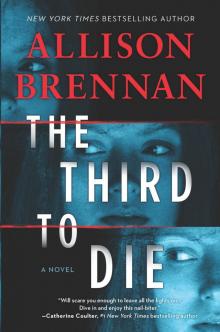 The Third to Die
The Third to Die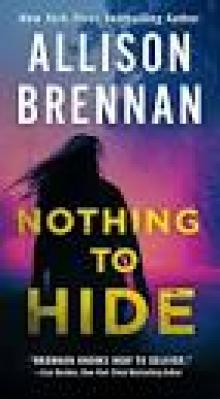 Nothing to Hide
Nothing to Hide No Way Out
No Way Out Cold as Ice
Cold as Ice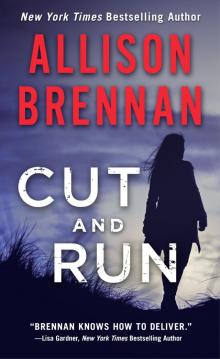 Cut and Run
Cut and Run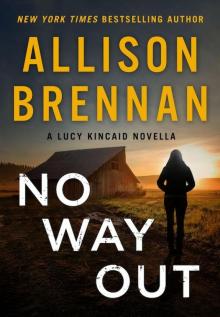 No Way Out (Lucy Kincaid Novels)
No Way Out (Lucy Kincaid Novels) Storm Warning
Storm Warning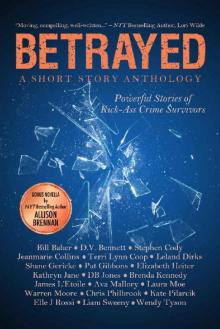 Betrayed: Powerful Stories of Kick-Ass Crime Survivors
Betrayed: Powerful Stories of Kick-Ass Crime Survivors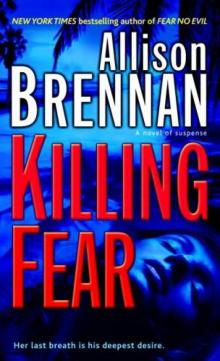 Killing Fear pb-1
Killing Fear pb-1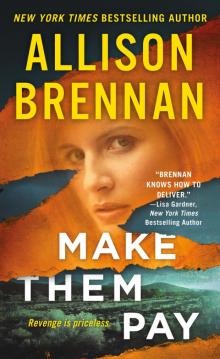 Make Them Pay
Make Them Pay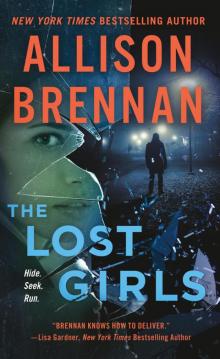 The Lost Girls
The Lost Girls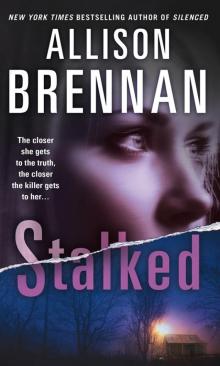 Stalked
Stalked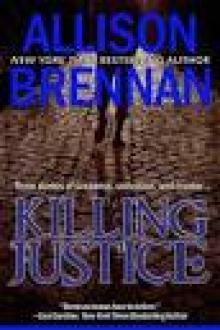 Killing Justice
Killing Justice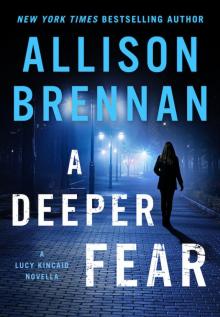 A Deeper Fear
A Deeper Fear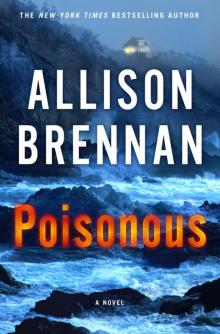 Poisonous
Poisonous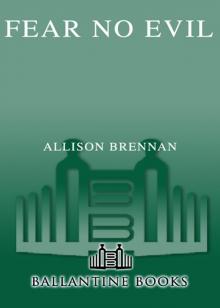 Fear No Evil
Fear No Evil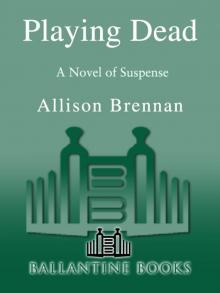 Playing Dead
Playing Dead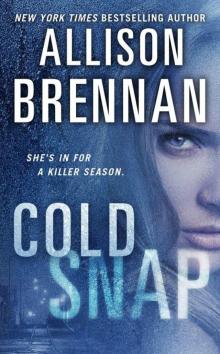 Cold Snap
Cold Snap Vacation Interrupted
Vacation Interrupted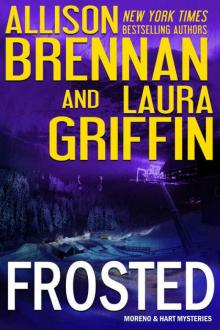 Frosted (Moreno & Hart Mysteries)
Frosted (Moreno & Hart Mysteries)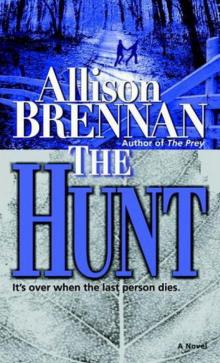 2 - The Hunt
2 - The Hunt Stolen
Stolen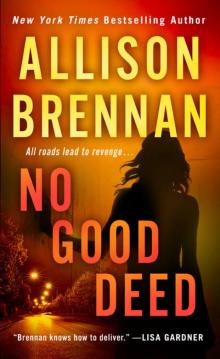 No Good Deed
No Good Deed Cutting Edge
Cutting Edge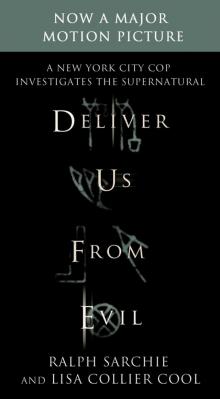 Deliver Us from Evil
Deliver Us from Evil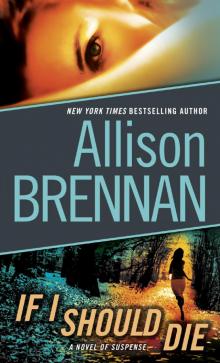 If I Should Die
If I Should Die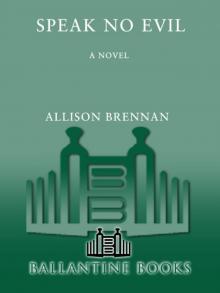 Speak No Evil
Speak No Evil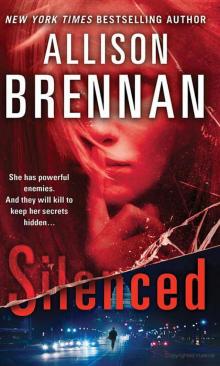 Silenced lk-4
Silenced lk-4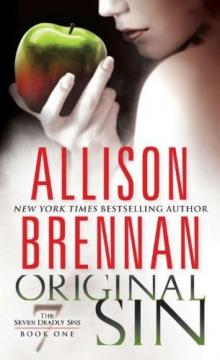 Original Sin sds-1
Original Sin sds-1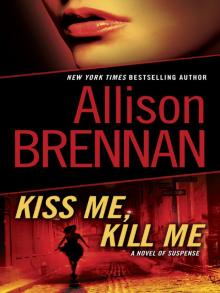 Kiss Me, Kill Me lk-2
Kiss Me, Kill Me lk-2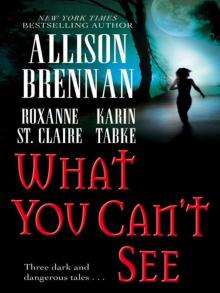 What You Can’t See
What You Can’t See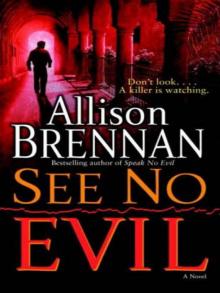 See No Evil
See No Evil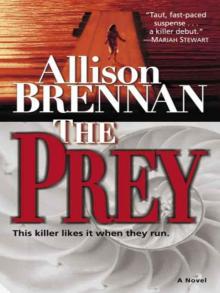 The Prey
The Prey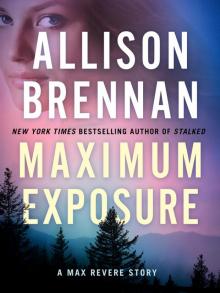 Maximum Exposure
Maximum Exposure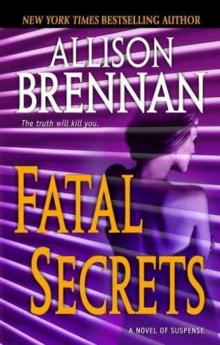 Fatal Secrets f-2
Fatal Secrets f-2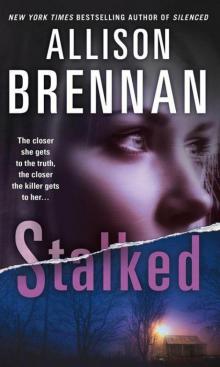 Stalked lk-5
Stalked lk-5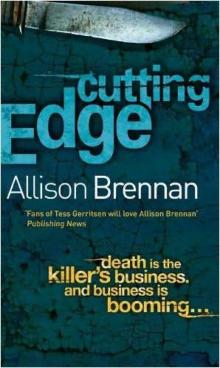 Cutting Edge f-3
Cutting Edge f-3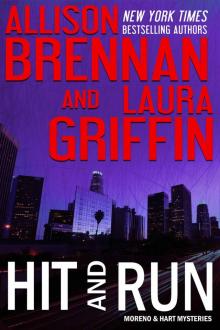 Hit and Run (Moreno & Hart Mysteries)
Hit and Run (Moreno & Hart Mysteries)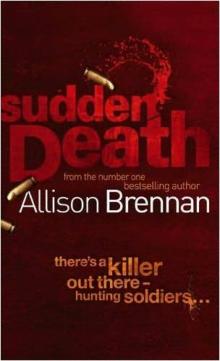 Sudden Death f-1
Sudden Death f-1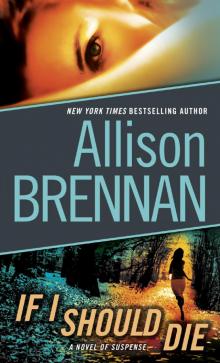 If I Should Die lk-3
If I Should Die lk-3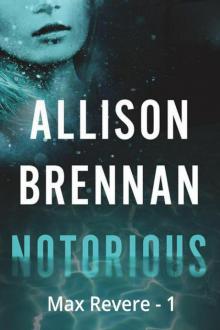 Notorious
Notorious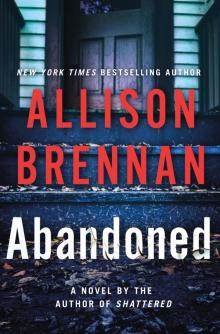 Abandoned
Abandoned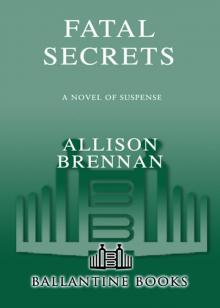 Fatal Secrets
Fatal Secrets The Hunt
The Hunt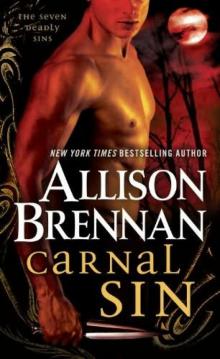 Carnal Sin sds-2
Carnal Sin sds-2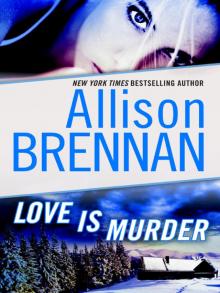 Love Is Murder
Love Is Murder Lost and Found
Lost and Found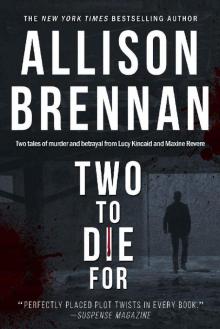 TWO TO DIE FOR
TWO TO DIE FOR Breaking Point
Breaking Point Best Laid Plans
Best Laid Plans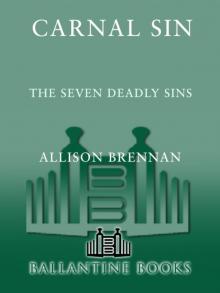 Carnal Sin
Carnal Sin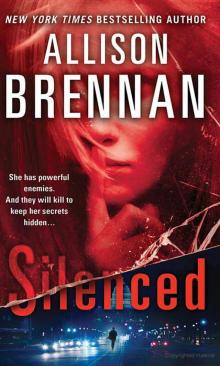 Silenced
Silenced Dead Heat
Dead Heat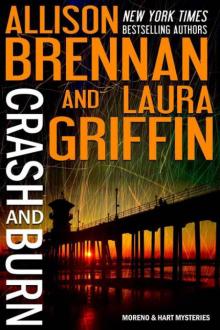 Crash and Burn
Crash and Burn Sudden Death
Sudden Death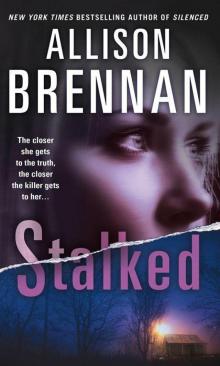 Lucy - 05 - Stalked
Lucy - 05 - Stalked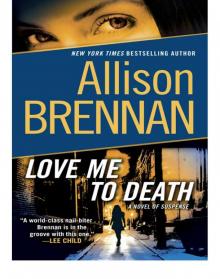 Mortal Sin
Mortal Sin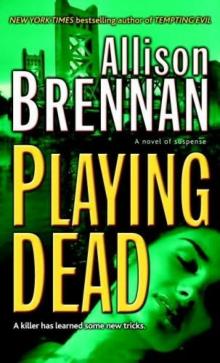 Playing Dead pb-3
Playing Dead pb-3 Kiss Me, Kill Me
Kiss Me, Kill Me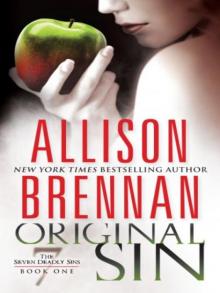 Original Sin: The Seven Deadly Sins
Original Sin: The Seven Deadly Sins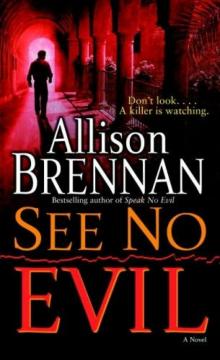 See No Evil e-2
See No Evil e-2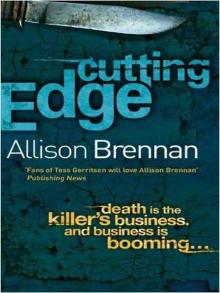 Cutting Edge: A Novel of Suspense
Cutting Edge: A Novel of Suspense Original Sin
Original Sin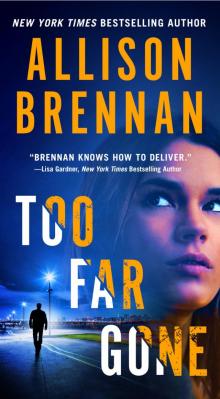 Too Far Gone
Too Far Gone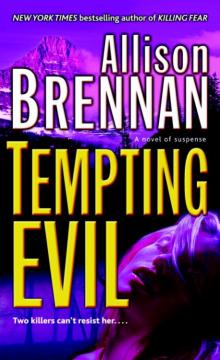 Tempting Evil
Tempting Evil Shattered
Shattered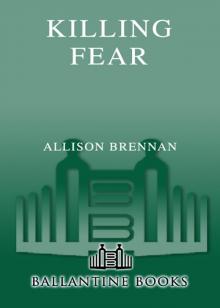 Killing Fear
Killing Fear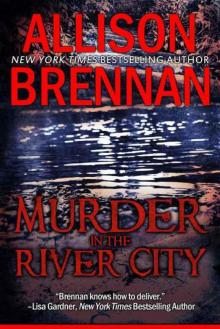 Murder in the River City
Murder in the River City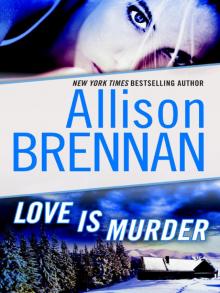 Love Is Murder (lucy kincaid)
Love Is Murder (lucy kincaid)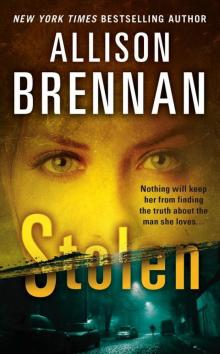 Stolen (Lucy Kincaid Novels)
Stolen (Lucy Kincaid Novels)